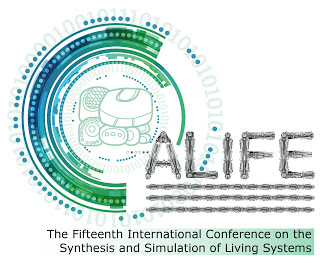New paper: Traffic Games: Modeling Freeway Traffic with Game Theory
We apply game theory to a vehicular traffic model to study the effect of driver strategies on traffic flow. The resulting model inherits the realistic dynamics achieved by a two-lane traffic model and aims to incorporate phenomena caused by driver-driver interactions. To achieve this goal, a game-theoretic description of driver interaction was developed. This game-theoretic formalization allows one to model different lane-changing behaviors and to keep track of mobility performance. We simulate the evolution of cooperation, traffic flow, and mobility performance for different modeled behaviors. The analysis of these results indicates a mobility optimization process achieved by drivers’ interactions. Cortés-Berrueco LE, Gershenson C, Stephens CR (2016) Traffic Games: Modeling Freeway Traffic with Game Theory. PLoS ONE 11 (11): e0165381. doi: 10.1371/journal.pone.0165381

